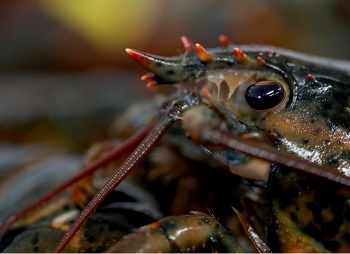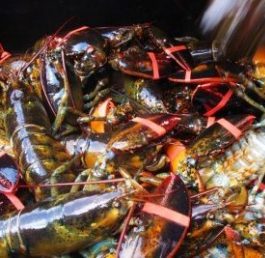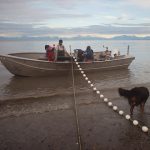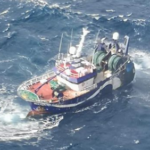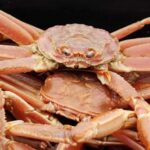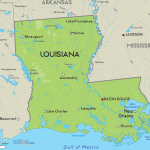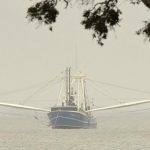Tag Archives: Sipekne’katik Chief Mike Sack
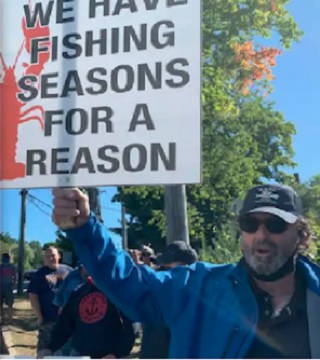
RUBENSTEIN: The endless Maritime lobster war
Nova Scotia has a series of historic treaties with the Mi’kmaq dating back to the 1720s, 150 years before any of the numbered treaties in the rest of Canada. These agreements are known as the Peace and Friendship Treaties and were designed to reduce warfare and to regulate trade between the indigenous and settler populations. While these treaties contained few monetary and no land transfer provisions, they guaranteed hunting, fishing and land-use rights for the descendants of the indigenous signatories. These Peace and Friendship Treaties remain in effect today but were regularly but improperly denied or ignored by the Crown during much of Nova Scotia’s past. Today, those ignoring the treaties and court rulings stemming from them are the Mi’kmaq themselves. >>click to read<< 10:27
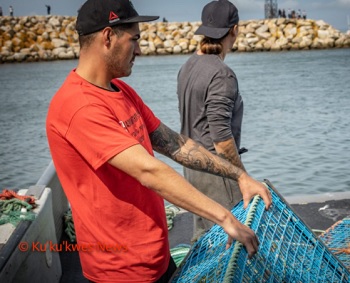
Sipekne’katik fisherman says delay in fishery launch the smart decision for now
Robert Syliboy, a member of the Sipekne’katik First Nation in Nova Scotia, said his community’s decision to delay the start of its own fishery this week was the smart thing to do for now. “,, Sipekne’katik Chief Mike Sack said concerns over safety is the main reason he and council members decided to postpone the start of the First Nation’s fishery for the time being. Lobster Fishing Area 34 in St. Mary’s Bay is currently closed to commercial fishing until the last week in November. >click to read< 08:07
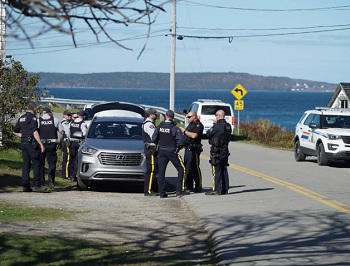
As tensions rose during N.S. fisheries dispute, province balked at paying for extra RCMP
The Mounties have faced scrutiny for their handling of the tensions that followed the launch in September of Sipekne’katik First Nation’s self regulated fishery in St. Marys Bay. Critics included federal Indigenous Services Minister Marc Miller who said the force should have done more to protect Mi’kmaw harvesters,,, It’s unclear what impact, if any, the financial approvals had on the RCMP’s staffing plans. “The number and type of RCMP resources that were deployed was based on operational needs,” Cpl. Chris Marshall, an RCMP spokesperson, said in an email. “In order to protect officer and public safety, we don’t discuss our operations, tactics and resources.” >click to read< 07:55
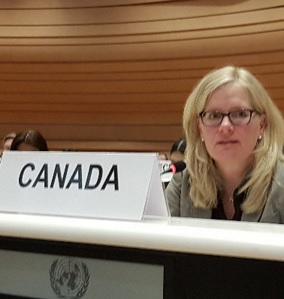
Canada’s lobster dispute goes international – UN committee seeks answers from Canada over racism, violence against Mi’kmaw fishers
The chair for the UN Committee on the Elimination of Racial Discrimination (CERD) asked Leslie Norton, Canada’s permanent representative to the United Nations in Geneva, Switzerland to explain what Canada has done to Investigate alleged acts of racism, violence and vandalism against Mi’kmaw fishers and supporters, Investigate alleged lack of response by officers with the RCMP and the Department of Fisheries and Oceans to protect Mi’kmaw people,,, The UN committee has given Norton until July 14 to provide a response. Sipekne’katik Chief Mike Sack said he was happy to see the letter from the UN committee. “It shows some hope that Canada has to answer for their actions or their lack of actions,” >click to read< 12:38
Canada’s lobster dispute goes international -Indigenous fishers say they have treaty and Supreme Court rights to fish where and when they want,,, Commercial fishers say the season is regulated and limited in order to conserve the resource,,, >click to read<
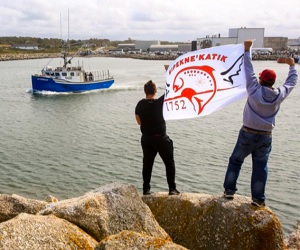
First Nation has right to catch lobster, but N.S. laws mean they can’t sell it. New court fight targets ‘economic racism’
A First Nation trying to establish its own self-governed lobster fishery is setting its sights on the Nova Scotia government. “We’ve always said that we’re going to hold everyone accountable for their actions,” Sipekne’katik Chief Mike Sack,,, “This is just finally coming to the forefront.” “We are more resolved than ever to bring this to court, as we have lost so much in the face of the violence and economic racism aimed at us from the commercial fishery throughout the fall,” >click to read< 08:10
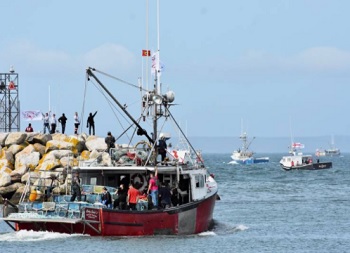
Failed policies, decisions on the fly: How the moderate livelihood fishery file blew up
Documents obtained through a freedom of information request show the federal Fisheries Department knew that 21 years of kicking the moderate livelihood issue down the election cycle had resulted in there being little rule of law on St. Mary’s Bay. The feds knew that the bay had become a pressure cooker as two communities were pitted against one another over a limited resource. When the top blew off, they turned to coming up with new policy on the fly while seeking a daily scorecard on evolving public opinion. “This is about a culture (in Ottawa) that would rather avoid any conflict at all,” said Thomas Isaac, an aboriginal rights lawyer who has served as British Columbia’s chief treaty negotiator,,,>click to read< 13:49
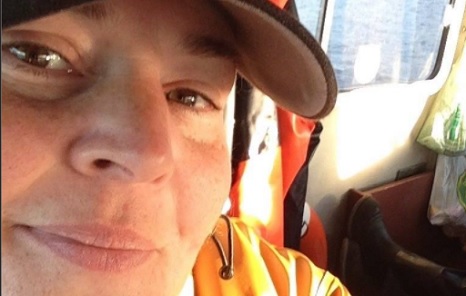
Envelope pushed in St. Marys Bay and Digby folk pushed into a corner – Susan Beaton
So now that the dust is starting to settle, righteous keyboard warriors can take a breather. So let’s try to give the people of Digby County and St. Marys Bay some consideration. Terrible things were said and done this month to the Sipekne’katik First Nation people and to those who supported them. No apologies here for the bad behaviour. But consider for a moment what it’s like for a small village, its lifeblood on the line, as a fight for treaty rights plays out on its doorstep. Sipekne’katik wanted to push to the forefront the “moderate livelihood” debate, as many bands in other areas are doing as well. This tiny bay became a focus of that effort. What happened next is a bit more dubious. By Susan Beaton, >click to read< 09:23

“Mixed Feelings”: Sipekne’katik chief says discussions with commercial fishers in Nova Scotia can wait
Responding to Ottawa’s decision to name Allister Surette as a facilitator in the dispute, Sipekne’katik Chief Mike Sack said he had “mixed feelings.” He said that while he was not fundamentally opposed to participating in the process, “right now, we’re not worried about that.” Surette, president and vice-chancellor of Université Sainte-Anne who has experience as a facilitator in fishery disputes, was named to the role on Friday. Surette said his work might lead to a resolution in the fishery dispute,,, Sack, however, maintained that the resolution lies in his band’s talks with the federal government, not with commercial fishers. >click to read< 16:00
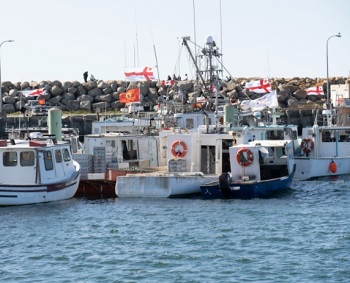
Sipekne’katik seek injunction from Nova Scotia Supreme Court to end threats, interference in lobster fishery
The Sipekne’katik band is seeking a temporary court injunction to end blockades, interference and threats over its lobster fishing in southwest Nova Scotia. The band applied to Nova Scotia Supreme Court Wednesday for an injunction to prohibit anyone from trying to stop members from accessing two wharves in the region, in Saulnierville and Weymouth, and a lobster pound it uses in New Edinburgh. The band also seeks to end interference at sea, where it says traps have been damaged, destroyed or taken by non-Indigenous fishermen. >click to read< 14:01

Commercial fishermen rally in Digby, Ex-fisheries minister calls for pause on out of season fishing and protests
Several hundred commercial fishermen held a rally Tuesday in Digby, N.S., as tensions continued to simmer over expanded Mi’kmaw lobster fishing in the area. There were calls for a pause on all out-of-season fishing by First Nations and an audit of commercial licences awarded to bands following the 1999 Marshall decision that recognized their right to fish for a moderate livelihood. Afterward, some fishermen gathered outside a lobster facility in New Edinburgh suspected of buying lobster harvested by Mi’kmaq fishermen when the season is closed. There was an RCMP presence at the rally, which was held on the eve of the Wednesday opening of commercial fishing in Lobster Fishing Area 35 in the Bay of Fundy. >click to read< 22:03
Mi’kmaq chief says there are bigger fish to fry than lobster
 A prominent Nova Scotia First Nation chief says he does not blame Mi’kmaq fishermen if they are using their ceremonial fishing licences to try to make a moderate living outside the commercial lobster season.,, Non-Indigenous fishermen have been protesting at wharves, calling for the Department and Fisheries and Oceans to intervene in what they say is the illegal sale of lobster by some First Nations fishermen.,, This year, the Trudeau government has taken conspicuous steps to improve First Nations access to fisheries in Atlantic Canada. click here to read the story 09:35
A prominent Nova Scotia First Nation chief says he does not blame Mi’kmaq fishermen if they are using their ceremonial fishing licences to try to make a moderate living outside the commercial lobster season.,, Non-Indigenous fishermen have been protesting at wharves, calling for the Department and Fisheries and Oceans to intervene in what they say is the illegal sale of lobster by some First Nations fishermen.,, This year, the Trudeau government has taken conspicuous steps to improve First Nations access to fisheries in Atlantic Canada. click here to read the story 09:35






